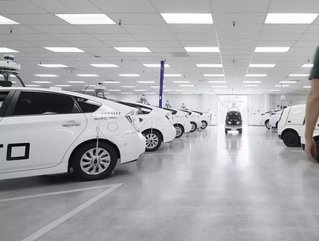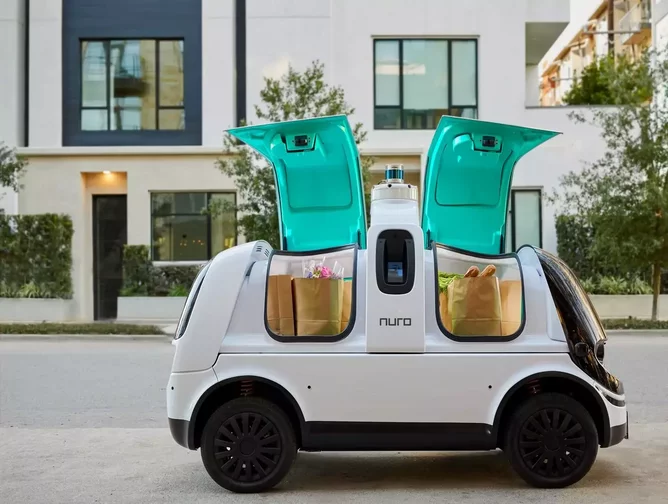Nuro Invests in Its First US Manufacturing & Testing Unit

Ramping Up Production
With ambitions to ramp up the production of its self-driving vehicles, autonomous delivery startup - Nuro - plans to invest US$40mn into the set up of its first manufacturing and testing facilities in the United States (US).
Already making deliveries for the US market for organisations such as Kroger Co. and Domino’s Pizza Inc. in Houston. The two new facilities will be located in Southern Nevada.
"Building on our tremendous momentum—including strategic partnerships with industry leaders such as Domino's, Kroger, and FedEx and operations in three states—we are now able to invest in the infrastructure to build tens of thousands of robots," said Jiajun Zhu, co-founder and chief executive officer of Nuro, in a statement.

Teaming Up with FedEx
Earlier in the year - June 2021 - Nuro signed a multi-year agreement with FedEx Corp. to test self-driving vehicles to advance last-mile logistics. This partnership comes as the growth in ecommerce accelerates the demand for reliable, autonomous solutions throughout the supply chain.
FedEx believes that this innovation will improve safety, efficiency, and productivity for its 570,000 employees.
“FedEx was built on innovation, and it continues to be an integral part of our culture and business strategy. We are excited to collaborate with an industry leader like Nuro as we continue to explore the use of autonomous technologies within our operations,” said Rebecca Yeung, vice president, advanced technology and innovation, FedEx Corporation.
Who is Nuro?
Founded in 2016, Nuro is “on a mission to better everyday life through robotics.” The startup company’s R2 autonomous delivery vehicle is a zero-emissions solution with no pedals or a steering wheel. The vehicle is designed to carry goods, not people, which the company proudly states allows them to priorities the people who share the roads rather than what is inside.
“We were convinced that this kind of vehicle had the potential to be safer than passenger vehicles: more nimble, narrower, and better able to prioritize the well-being of other road users. And by building such a vehicle, we could also lower vehicle cost, improve the customer experience, and accelerate autonomous technology deployment by solving problems jointly through both hardware and software development,” states Nuro.






